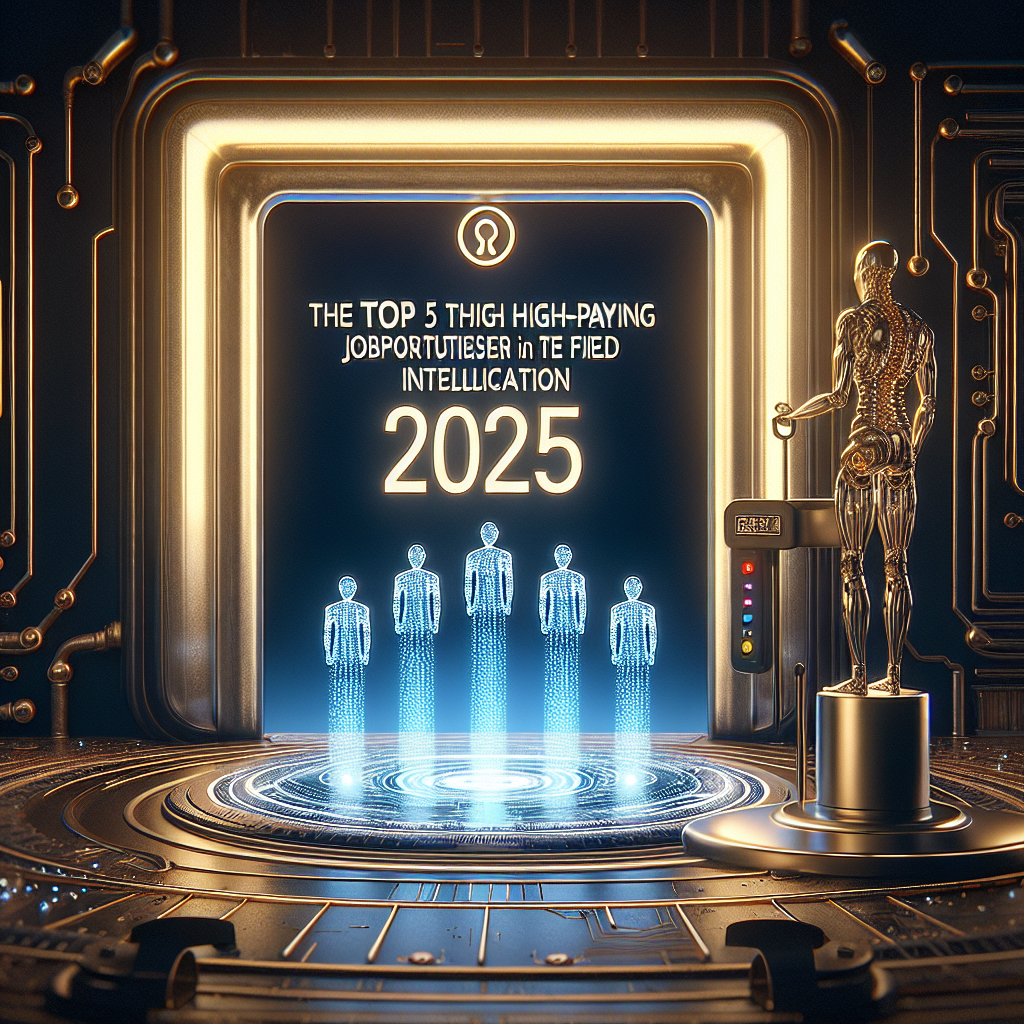The rise of artificial intelligence (AI) has not only revolutionized the way businesses operate but also significantly transformed the job market. The demand for AI professionals is skyrocketing, opening up a plethora of high-paying job opportunities. By 2025, these opportunities are expected to proliferate even more, making it an exciting time for those looking to venture into this dynamic field. This article explores the top five high-paying AI job opportunities for 2025 and provides insights on how to unlock them.
1. AI Architect
An AI Architect is one of the most sought-after job roles in the AI industry. This role involves creating, managing, and overseeing an organization’s AI strategy. It’s a role that combines technical knowledge with strategic planning.
A. Role and Responsibilities
- Developing and implementing an organization’s AI strategy
- Identifying AI opportunities and risks for businesses
- Leading AI projects and coordinating with other teams
- Ensuring AI systems align with the organization’s business goals
B. Skills Required
- Deep understanding of AI technologies and methodologies
- Proficient in AI programming languages such as Python or Java
- Strong strategic thinking and planning skills
- Excellent leadership and project management skills
2. AI Ethics Officer
With AI’s pervasive use comes ethical dilemmas and considerations. An AI Ethics Officer plays a crucial role in addressing these ethical concerns, making it one of the top high-paying AI jobs for 2025.
A. Role and Responsibilities
- Developing and enforcing ethical guidelines for AI usage
- Ensuring AI systems respect privacy and data protection laws
- Educating staff about AI ethics
B. Skills Required
- Deep understanding of AI technologies and their societal impact
- Knowledge of data privacy laws and regulations
- Strong ethical reasoning and decision-making skills
3. AI Product Manager
An AI Product Manager is responsible for guiding the success of an AI product while leading the cross-functional team responsible for improving it. This role is crucial for companies looking to outshine their competition and innovate in their respective industries.
A. Role and Responsibilities
- Defining the vision and strategy for AI products
- Leading the cross-functional team responsible for the product’s success
- Managing the entire product lifecycle
B. Skills Required
- Deep understanding of AI technologies and the market landscape
- Excellent leadership and communication skills
- Experience in product lifecycle management
4. AI Research Scientist
AI Research Scientists are at the forefront of AI innovations. They conduct research and experiments to develop and improve AI technologies. This role is central to the advancement of AI and offers a high pay scale.
A. Role and Responsibilities
- Conducting research to innovate and improve AI technologies
- Developing algorithms and models for AI applications
- Publishing research findings in academic journals
B. Skills Required
- Deep understanding of AI technologies and methodologies
- Proficient in AI programming languages such as Python or Java
- Strong research and analytical skills
5. AI Data Scientist
A AI Data Scientist plays a significant role in interpreting complex digital data to help businesses make decisions. This role requires a high level of expertise in statistics and programming.
A. Role and Responsibilities
- Interpreting data to discover insights and help businesses make decisions
- Developing algorithms and models for AI applications
- Communicating findings to stakeholders
B. Skills Required
- Deep understanding of AI technologies and methodologies
- Proficient in data analysis tools and programming languages
- Strong analytical and communication skills
Pros and Cons of AI Jobs
Like any profession, AI jobs come with their own set of pros and cons. Here are some to consider:
Pros
- High salary prospects due to rising demand
- Opportunities for continuous learning and growth
- Potential for pioneering innovation in various industries
Cons
- Requires continuous learning due to rapidly evolving AI technologies
- High pressure and expectations due to the significant impact of AI systems
- May raise ethical dilemmas and considerations
Frequently Asked Questions
1. What qualifications do I need for an AI job?
Most AI roles require a degree in computer science or a related field. However, many professionals also enter the field with degrees in mathematics, statistics, or data science. Proficiency in programming languages such as Python or Java is also necessary.
2. Can I transition into an AI role from a different industry?
Yes, it’s possible to transition into an AI role from a different industry. Many professionals make this transition by pursuing further education or certification in AI and gaining practical experience through projects or internships.
3. What is the average salary for AI jobs?
The average salary for AI jobs varies greatly by role and location, but these roles are typically among the highest-paying in the tech industry. According to Payscale, the average salary for an AI engineer in the US is around $112,806 per year, with the potential to earn much more in senior or specialized roles.
